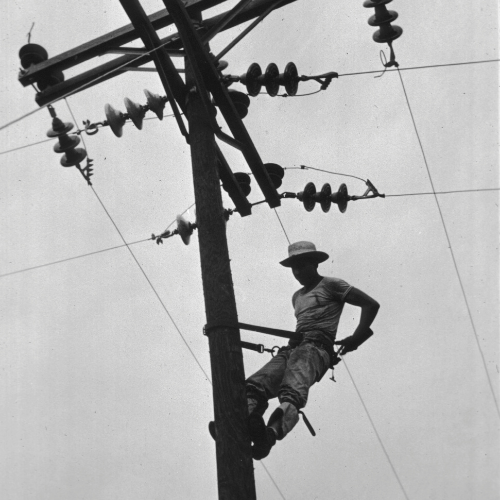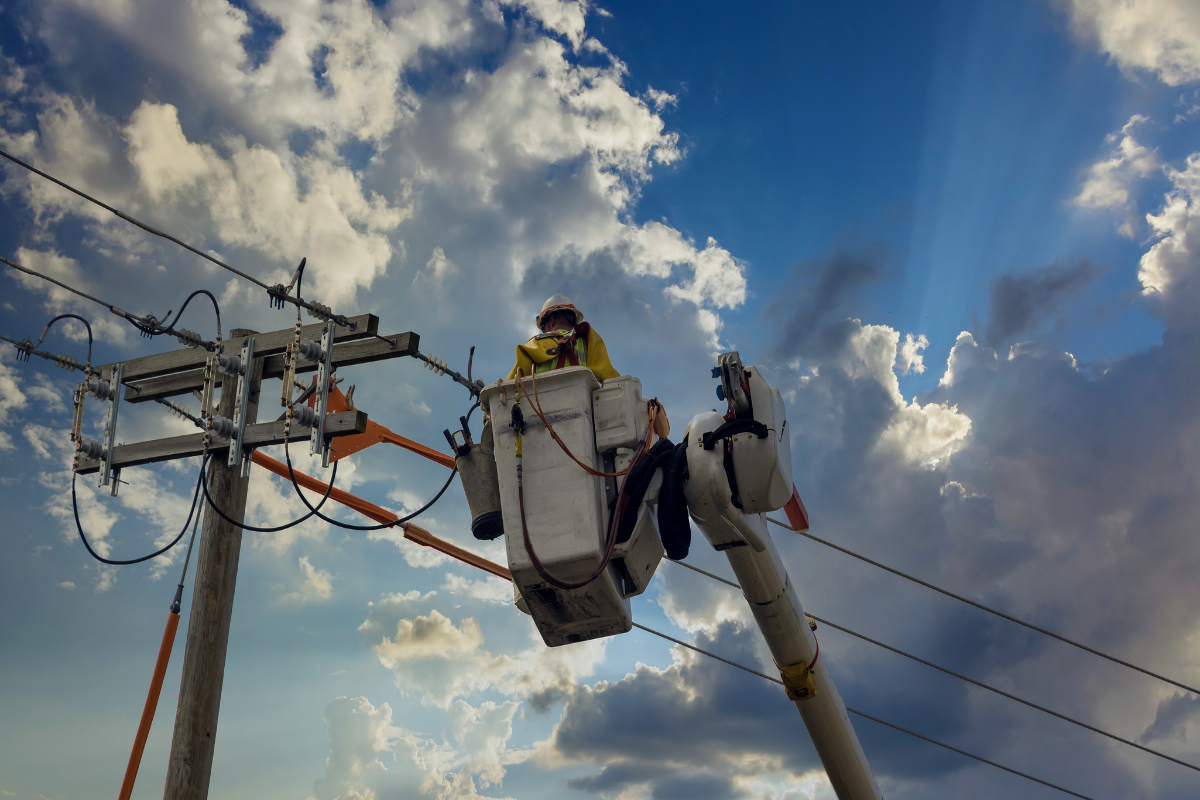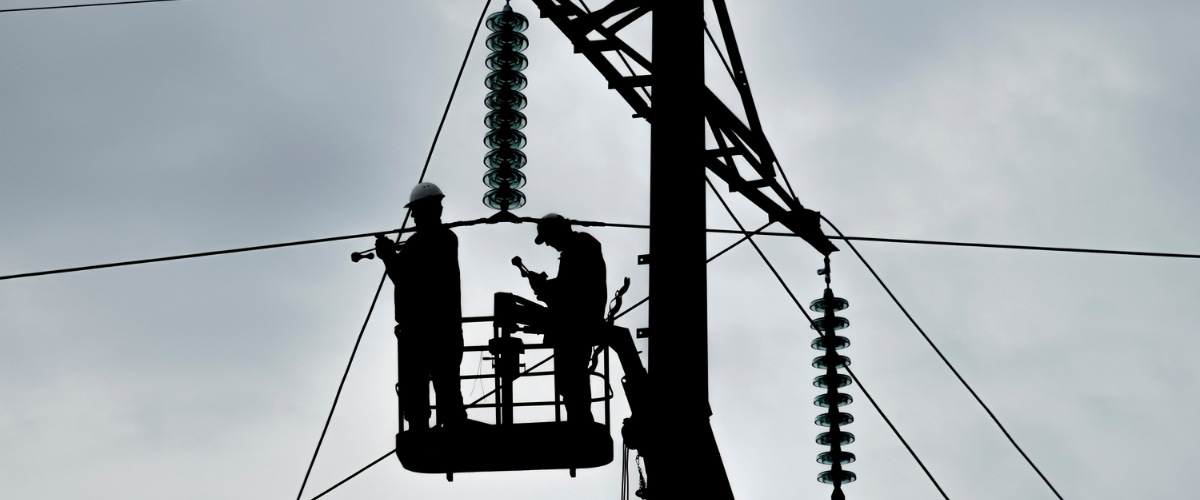When asked why line work is considered one of the most dangerous jobs in America, Brown responded “with only rubber gloves separating you from a energized line with a 23,000 volt charge, you are perched on an insulated aerial platform, hanging forty-five feet above the ground. Sometimes you’re required to climb those forty-odd feet using only your climbing gaffs and belt, all while exposed to the elements—anything ranging from a scorching hot summer day, to the torrential rains and high winds that occur during a hurricane.”
Brown elaborated that one of the most important safety measures is working as a team: one relies on their crew for support and to keep each other safe. Checking and double-checking PPE personally and within the group is essential, as nobody wants to discover a hole in their glove while working around an energized circuit. To add even more danger to the mix, much of the work is performed in high-traffic areas – after all, electrical lines typically run along surface roads. This requires the proper high-visibility and reflective clothing to maintain a safe work environment, along with the usual hard hat, glasses, and specialty insulated gloves.
With safety at its forefront, line workers are required to participate in monthly safety meetings as well as yearly certifications, such as hurt-man rescue. Hurt-man rescue is the practice of rescuing a 200-lb mannequin that is suspended 40+ feet in the air, meant to represent an unconscious climber. It’s a timed initiative, in which the participants are expected to execute the rescue in under 4 minutes.
Offering aid as a first responder is one of the primary functions of a line worker. Restoring resources after a natural disaster or catastrophic storm is their duty, and they may even work through a storm or other adverse conditions if it’s in their local area. Otherwise, they travel to affected areas post-storm or disaster to repair infrastructure as needed.



